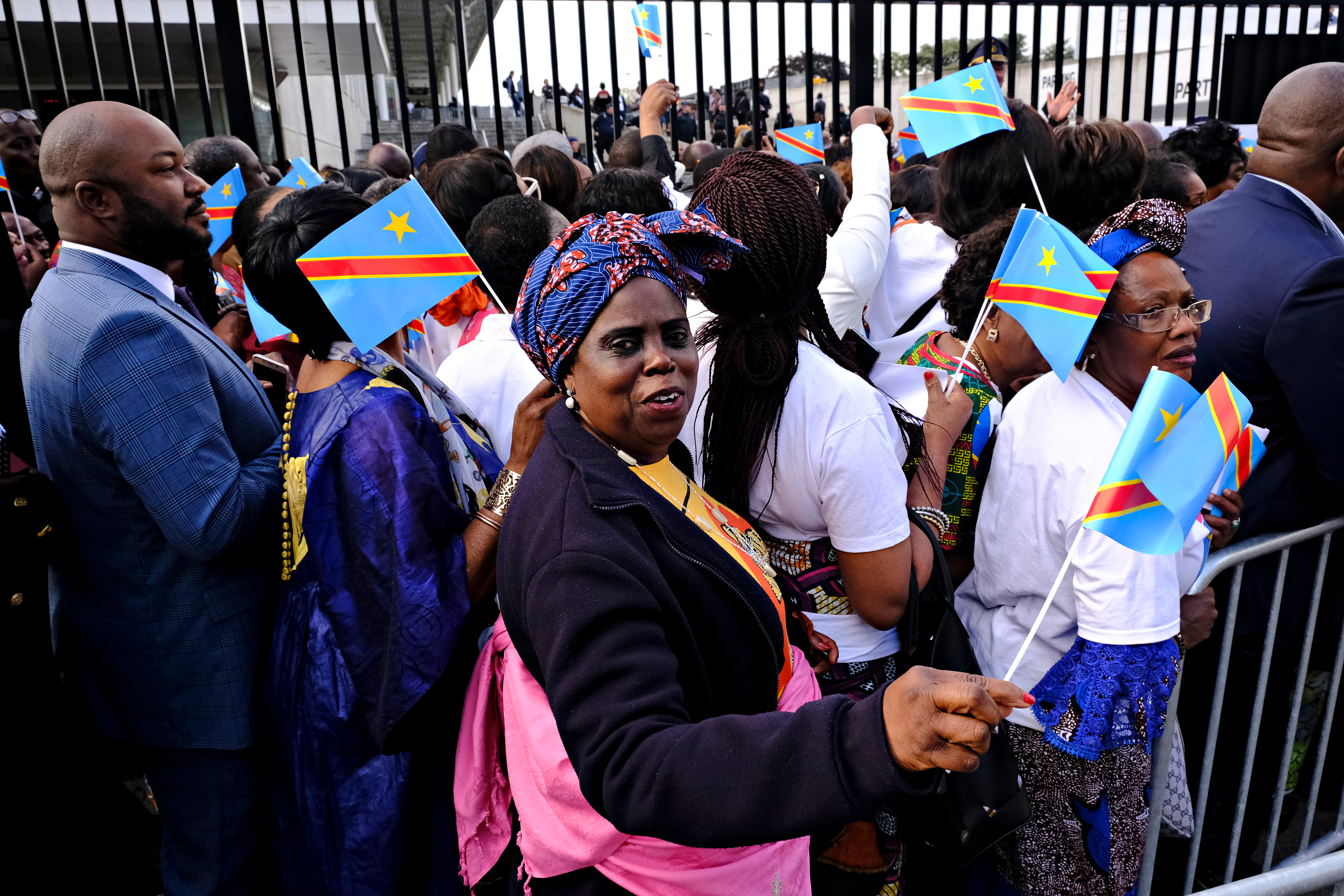Democratic Republic of Congo
DRC Gears Up for High-Stakes Elections Amidst Tension and Critical Challenges

Congolese people gather to show support for their nation.
© ShutterstockThe Democratic Republic of Congo is on the verge of a momentous period as it heads towards the much-anticipated presidential, legislative, and provincial elections on the 20th of December 2023. Incumbent President Felix Tshisekedi seeks re-election; he ascended to power in 2018 following controversial polls that many observers deemed illegitimate due to numerous irregularities, including logistical problems, delays, and widespread fraud allegations.
Tshisekedi was declared the winner of the December 2018 polls, defeating his political opponent Martin Fayulu, who vehemently rejected the results. Fayulu accused Tshisekedi of striking a political deal with former President Joseph Kabila, an allegation both Tshisekedi and Kabila denied. This marked a significant moment in Congo's history as the elections facilitated the country's first peaceful political transition since independence, with Kabila peacefully transferring power to Tshisekedi. Nevertheless, the Congolese Constitutional Court had to arbitrate, ultimately affirming Tshisekedi as the winner.
Tshisekedi pledged to combat corruption, address the ailing economy, and tackle Congo's security crisis. However, critics argue that the President has failed to effectively address these critical issues facing the DRC. Approximately 40 million Congolese are eligible to vote, with over 25,832 candidates running for the legislative election, more than 40,000 candidates participating at the provincial level, and about 31,000 candidates contesting in the municipal councils, according to the Independent National Electoral Commission.
Notable presidential candidates include 2018 Nobel Peace laureate Dr. Denis Mukwege, advocating for a well-structured and modernised military if elected; Martin Fayulu, who contested and lost to Tshisekedi in 2018; veteran politician Moïse Katumbi, a former governor of the Katanga region and a wealthy tycoon; and Adolphe Muzito, a former Prime Minister, also participating in the heavily contested polls.
One of the critical issues facing the DRC is the volatile situation in Eastern Congo. For nearly 30 years, the nation has grappled with violence primarily due to the presence of rebel groups. United Nations peacekeeping troops and the Community of East African States have intervened to address this crisis. Despite Rwanda's denial of backing M23 rebels, President Felix Tshisekedi has repeatedly accused Kigali of supporting M23. Organisations like the International Crisis Group warn that ignoring the perennial violence could disenfranchise over a million voters.
In November, the newly appointed chairperson of the East African Community, South Sudan President Salva Kiir, emphasised that resolving the crisis hinges on negotiations between the DRC government and rebel groups. He urged EAC heads of state to remain committed to the Nairobi Peace Process, aimed at restoring peace in Eastern DRC. Burundian President Evariste Ndayishimiye, the former chairperson of the summit, highlighted that ceasefire violations in early October 2023 had escalated into a large-scale conflict, jeopardising the Nairobi Process addressing the Congo conflict.
Former DRC presidential aspirant and current Defence Minister Jean-Pierre Bemba disclosed that nearly 2.4 million people in Eastern DRC had been displaced by the ongoing conflict. Urgent solutions are needed for their safe return and to restore normalcy. Other groups involved in the skirmishes include the Allied Democratic Forces and the Cooperative for the Development of Congo, claiming to defend the interests of Lendu farmers, especially in North Kivu. President Felix Tshisekedi has advocated for the removal of the United Nations peacekeeping mission due to its perceived failure in protecting civilians, making it unpopular among the populace.
Another pressing issue is the DRC's economy. Despite a reported 8.5 percent growth in 2022, making it one of the fastest-growing economies in sub-Saharan Africa according to the International Monetary Fund, the country faces economic challenges. Despite its wealth in copper, cobalt, and other resources, little trickles down to ordinary Congolese citizens. The poverty rate, as per the 2020 Notre Dame Global Adaptation Index, stands at 62 percent. Over 26 million people require humanitarian aid, aggravated by increased living costs resulting from reliance on imported basic food items. The local currency, the Congolese franc, has depreciated, driving inflation to almost 23 percent in 2023.
The European Union announced it would not dispatch its election observer mission to the DRC due to security concerns and the unavailability of essential telecommunication equipment for deployment across the country. However, the EU urged DRC authorities and all stakeholders to ensure Congolese citizens exercise their legitimate political and civil rights in the upcoming elections. Meanwhile, the Southern African Development Community (SADC) will deploy its electoral observation mission to oversee technical, logistical, and administrative arrangements. According to the SADC secretariat, this aligns with regional principles and guidelines governing democratic elections, aiming to prevent political violence, intimidation, intolerance, and promote equal opportunities for all political parties to access state media and citizens to access information.
As December 20th approaches, tensions rise on the ground. Election experts emphasise the electoral body's role in mitigating risks; failure to do so might lead to a national crisis akin to that experienced in 2018.
